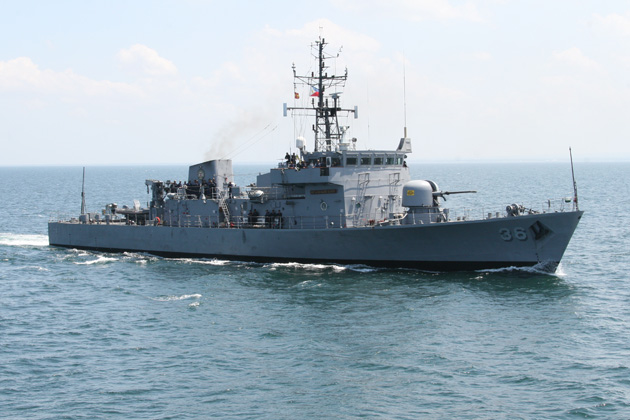PRESS RELEASE
The National Democratic Front of the Philippines (NDFP) today decried the “continuing non-compliance” of the Government of the Republic of the Philippines (GRP) with previously signed agreements especially the Comprehensive Agreement on Respect for Human Rights and International Humanitarian Law (CARHRIHL) and the Joint Agreement on Safety and Immunity Guarantees (JASIG) saying that the release of all political prisoners should not be an outcome of a final peace agreement.
The NDFP issued the statement after recent reports quoted GRP Peace Panel Chairperson Silvestre Bello III saying that “a draft amnesty proclamation that enables the release of the political detainees is ready for submission during the second round of peace talks” but, qualified that “a general amnesty could be declared by President Duterte, with the concurrence of Congress, once the peace talks are successfully concluded.”

NDFP photo
NDFP Negotiating Panel Chairperson Luis Jalandoni insists that “the release of all political prisoners should not be an outcome of the successful conclusion of the peace talks.”
“Anchoring an amnesty proclamation to a final peace agreement would make the more than 400 detained political prisoners and the recently released NDF consultants as virtual hostages to the peace talks. Their immediate release is a matter of compliance with the CARHRIHL and the JASIG,” Jalandoni said.
He added that “there seems to be a disconnect between President Duterte, who commits to the expeditious release of all political prisoners through an amnesty proclamation, the GRP Peace Panel, and the legal courts in the Philippines.”
“The fabricated criminal cases that are not yet dropped are like swords of Damocles hanging over the heads of JASIG-protected consultants of the NDFP. Their freedom of movement is being restricted,” says Jalandoni, urging the GRP Peace Panel not to use the political prisoners and the recently released NDF consultants as trump cards in the peace negotiations.
In the August 26, 2016 Joint Statement, the Parties agreed that “the GRP Panel will immediately recommend to President Rodrigo Roa Duterte the issuance of an Amnesty Proclamation, subject to concurrence of Congress, for the release of prisoners who are listed by the NDFP and who have been arrested, imprisoned, charged, and/or convicted for alleged acts or omissions within the ambit of the Revised Penal Code or special laws in connection with alleged crimes in pursuit of one’s political beliefs.”
“The Parties will discuss the content and language of the Amnesty Proclamation,” the Joint Statement stated.
The second round of peace negotiations is set to take place in Oslo, Norway from October 6-10, 2016 with social and economic reforms as among the focus of the discussions.
Last month, the NDFP exchanged with the GRP a proposed “framework and outline” for the Comprehensive Agreement on Social and Economic Reforms, the second substantive agenda of the peace negotiations according to the framework agreement set by The Hague Joint Declaration of 1992.
According to the NDFP proposal, the main CASER objectives are: a) carry out agrarian reform and national industrialization; b) advance the rights of exploited, oppressed, discriminated and disadvantaged sectors of society; c) uphold, protect, defend and promote economic sovereignty; and d) conserve the national patrimony and protect the environment. #
Reference:
NDFP Information Office
0031302310431
http://www.ndfp.org/release-political-prisoners-not-incidental-final-accord-ndf-insists/




